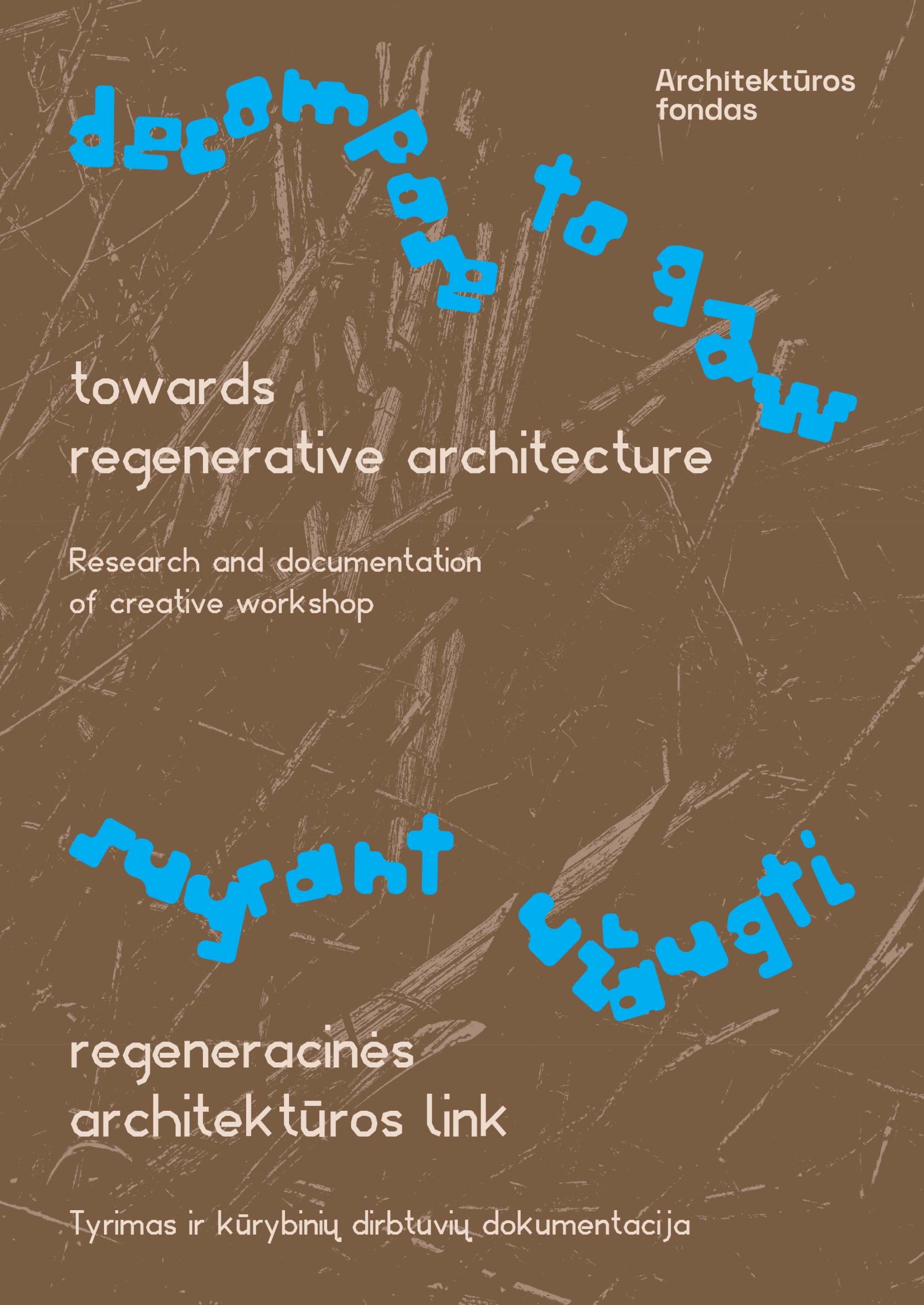Publication
Decompose to Grow—Towards Regenerative Architecture
We present the publication Decompose to Grow—Towards Regenerative Architecture, which invites readers to explore the principles of circular design and their potential applications in architecture, with particular emphasis on the use of renewable local resources. This two-part volume, edited by Martynas Germanavičius, comprises a study on the potential of regenerative architecture in Lithuania and documentation of the creative workshop Altering Matter: Decompose to Grow.
The publication invites a broader perspective on today’s architectural and urban challenges—beyond administrative boundaries and conventional disciplinary frameworks—by encouraging a re-evaluation of the essential physical resources that shape our built environment: forests, meadows, and even wetlands. It prompts us to imagine how we might create cities and architecture rooted in regenerative principles—considering not only the capacity of infrastructure to adapt to evolving societal needs, but also economic systems that function in harmony with the renewable cycles of the natural world.
In the first part of the publication, Martynas Germanavičius offers an in-depth introduction to the principles of circularity in design and examines the foundations of regenerative architecture. Architect-researcher Eglė Kliučinskaitė and urbanist Paulius Kliučininkas, in their study From Bioregions to Organic Materials: Towards Regenerative Architecture, analyse the Lithuanian context. Exploring the reciprocal relationship between the environment and ecosystems, Paulius Kliučininkas advocates for adopting the concept of the bioregion in urban and regional planning. Building on Lithuania’s existing territorial resources and bioproduction, he outlines a perspective for shaping future national bioregional planning practices. In parallel, Eglė Kliučinskaitė focuses on lesser-known plant-based materials, examining both the tradition of using fibre-based materials and contemporary trends in their architectural application.
The second part of the publication presents the process and outcomes of the 2024 creative workshop Altering Matter: Decompose to Grow, curated by Martynas and Eglė. The workshop extended the practical investigation into regenerative possibilities in architecture, focusing on the lifecycle of renewable organic materials—from harvesting to their practical application in the renovation of buildings in need of restoration at the Vingis branch of Vilnius University Botanical Garden.
The publication also offers an in-depth introduction to the context of the botanical garden and the design responses developed by participants of the creative workshop. Exploring the site’s potential from various perspectives and testing possible scenarios for its use, the participants created spatial installations that experimented with organic and technological materials such as reeds, textiles, reused metal structures, and concrete. The applied methodology—combining materials of diverse origins—enabled the creation of structurally stable yet tactilely warm and nuanced interventions.
Divided into five groups, the participants identified urgent spatial needs through their installations and, via the creative process, brought the site’s qualities and potential to the fore. Each intervention is further illuminated by drawings from Marius Lukošiūnas and Artūras Čertovas, alongside photographs by Laurynas Skeisgiela. Thanks to the guidance of the workshop leaders, ŠA atelier and L’Atelier Senzu, the five distinct installations form a cohesive material and spatial narrative, revealing the future potential of the greenhouse complex itself.


